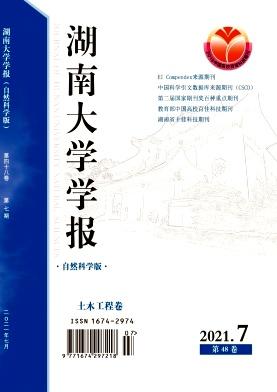Analysis of Convergence and Noise Terms in the Adomian Decomposition Method for Nonlinear PDEs
引用次数: 0
Abstract
In this study, we enter the field of nonlinear partial differential equations (PDEs) and propose a novel approach to their solution. We employ the iterative Adomian decomposition method (ADM) to address a distinct subclass of nonlinear PDEs. The main objective of this paper is to evaluate the efficiency and reliability of the ADM in handling complex mathematical models. To this end, we explore the convergence characteristics of the method when applied to the aforementioned class of equations. Our analysis sheds light on the intricate interplay between the iterative steps of the method and the underlying nonlinear dynamics, providing valuable insights into the behavior of the solution process. Through this investigation, we find noise terms in the context of inhomogeneous equations. We reveal that the presence of noise is intrinsically linked to the inherent heterogeneity of the equations, and its impact on convergence behavior is systematically elucidated. To validate the robustness and accuracy of the proposed method, we present a series of numerical results. These results not only underscore the reliability of the method in producing accurate solutions but also highlight its potential to overcome computational challenges associated with nonlinear PDEs. In summary, our study contributes to the broader picture of nonlinear PDE solvers by showing the potential of the Adomian decomposition method, especially in models involving noise terms and inhomogeneous equations. The efficiency of this method is illustrated by investigating the convergence results for this equation. We show that the noise terms are conditional for nonhomogeneous equations, and the numerical results demonstrate the reliability and accuracy of the ADM. Keywords: the Adomian method, noise terms, iterative method. https://doi.org/10.55463/issn.1674-2974.50.7.22非线性偏微分方程Adomian分解方法的收敛性和噪声项分析
在这项研究中,我们进入了非线性偏微分方程(PDEs)的领域,并提出了一种新的方法来解决它们。我们采用迭代Adomian分解方法(ADM)来处理非线性偏微分方程的一个不同子类。本文的主要目的是评估ADM处理复杂数学模型的效率和可靠性。为此,我们探讨了该方法在应用于上述一类方程时的收敛特性。我们的分析揭示了该方法的迭代步骤和潜在的非线性动力学之间复杂的相互作用,为解决过程的行为提供了有价值的见解。通过这项研究,我们发现了非齐次方程中的噪声项。我们揭示了噪声的存在与方程的固有异质性有着内在的联系,并系统地阐明了噪声对收敛行为的影响。为了验证该方法的鲁棒性和准确性,我们给出了一系列的数值结果。这些结果不仅强调了该方法在产生精确解方面的可靠性,而且强调了其克服非线性偏微分方程相关计算挑战的潜力。总之,我们的研究通过展示Adomian分解方法的潜力,特别是在涉及噪声项和非齐次方程的模型中,为非线性PDE求解器的更广泛的图像做出了贡献。通过对该方程的收敛结果的研究,说明了该方法的有效性。我们证明了非齐次方程的噪声项是有条件的,数值结果证明了adm的可靠性和准确性。关键词:Adomian法,噪声项,迭代法。https://doi.org/10.55463/issn.1674-2974.50.7.22
本文章由计算机程序翻译,如有差异,请以英文原文为准。
求助全文
约1分钟内获得全文
求助全文

 求助内容:
求助内容: 应助结果提醒方式:
应助结果提醒方式:


